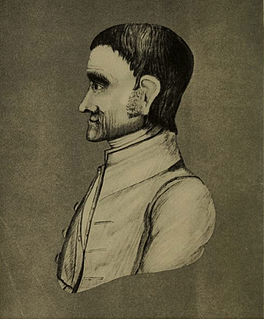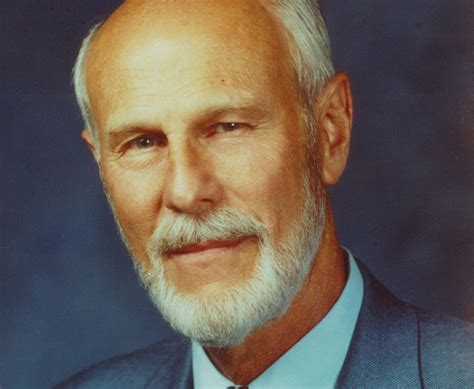A Quote by John Stott
God intends... our care of Creation to reflect our love for the Creator.
Related Quotes
I believe that where the love of God is perfected and the true spirit of government watchfully attended to, a tenderness toward all creatures will be experienced, and a care felt in us that we do not lessen that sweetness of life in the animal creation which the Great Creator intends for them under our government.
There are people who say, "God is in complete control of everything that happens, and if the Earth is getting warmer, then maybe God intends that." Well, no. God intends for us to take responsibility for how we treat God's creation, and if we choose to use the thin shell of atmosphere surrounding our planet as an open sewer for 110-million tons of global-warming pollution every day, the consequences are attributable to us. And if you are a believer, as I am, I think God intends for us to open our eyes and take responsibility for the moral consequences of our actions.
For Calvin, the creation reflects its Creator at every point. Image after images flashed in front of our eyes, as Calvin attempts to convey the multiplicity of ways in which the creation witnesses to its Creator: it is like a visible garment, which the invisible God dons in order to make himself known; it is like a book in which the name on the Creator is written as its author; it is like a theater, in which the glory of God is publicly displayed; it is like a mirror, in which the works and wisdom of God are reflected.
Man depends on God for all things: God depends on man for one. Without man's love God does not exist as God, only as creator, and love is the one thing no one, not even God himself, can command. It is a free gift or it is nothing. And it is most itself, most free, when it is offered in spite of suffering, of injustice, and of death . . . The justification of the injustice of the universe is not our blind acceptance of God's inexplicable will, nor our trust in God's love, his dark and incomprehensible love, for us, but our human love, notwithstanding anything, for him.
Why pray? Evidently, God likes to be asked. God certainly does not need our wisdom or our knowledge, nor even the information contained in our prayers ("your Father knows what you need before you ask him"). But by inviting us into the partnership of creation, God also invites us into relationship. God is love, said the apostle John. God does not merely have love or feel love. God is love and cannot not love. As such, God yearns for relationship with the creatures made in his image.
To reverence the impersonal creation instead of the personal God who created us is a perversion designed for escaping moral accountability to the Creator. God indicts those who worship the creation instead of its Creator (Rom 1:18-23); and warns of the corruption of morals and behavior which results.
The refusal to be creative is an act of self-will and is counter to our true nature. When we are open to our creativity, we are opening to God: good, orderly direction. As we pursue our creative fulfillment, all elements of our life move toward harmony. As we strengthen our creativity, we strengthen our connection to the Creator within. Artists love other artists. Our relationship to God is co-creative, artist to artist. It is God's will for us to live in creative abundance.
The annual World Day of Prayer for the Care of Creation will offer individual believers and communities a fitting opportunity to reaffirm their personal vocation to be stewards of creation, to thank God for the wonderful handiwork which he has entrusted to our care, and to implore his help for the protection of creation, as well as his pardon for the sins committed against the world in which we live.
Prayer is the converse of the soul with God. Therein we manifest or express to Him our reverence, and love for His divine perfection, our gratitude for all His mercies, our penitence for our sins, our hope in His forgiving love, our submission to His authority, our confidence in His care, our desires for His favour, and for the providential and spiritual blessings needed for ourselves and others.
Christian people should surely have been in the vanguard of the movement for environmental responsibility, because of our doctrines of creation and stewardship. Did God make the world? Does he sustain it? Has he committed its resources to our care? His personal concern for his own creation should be sufficient to inspire us to be equally concerned.

































